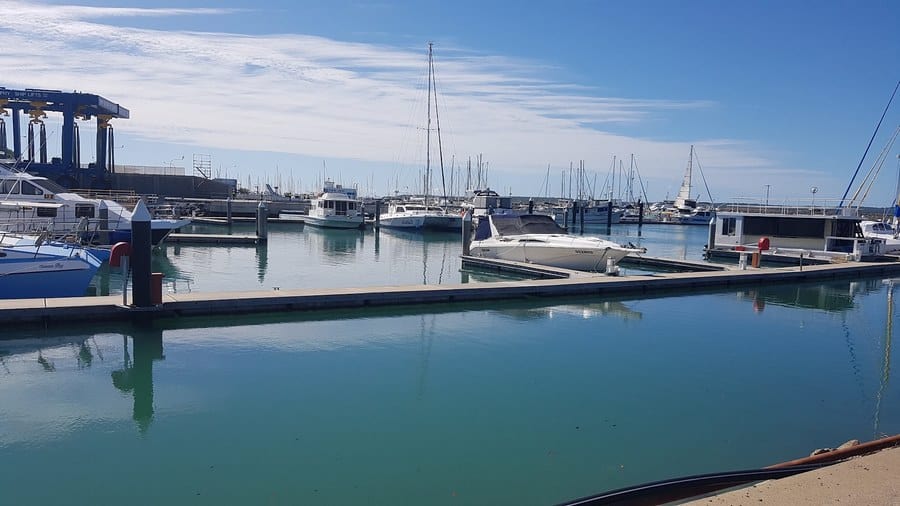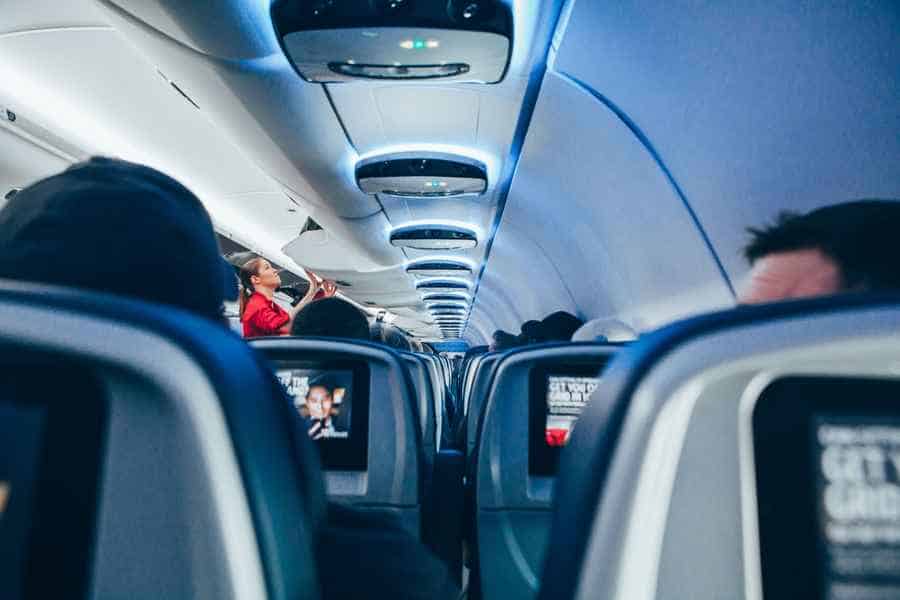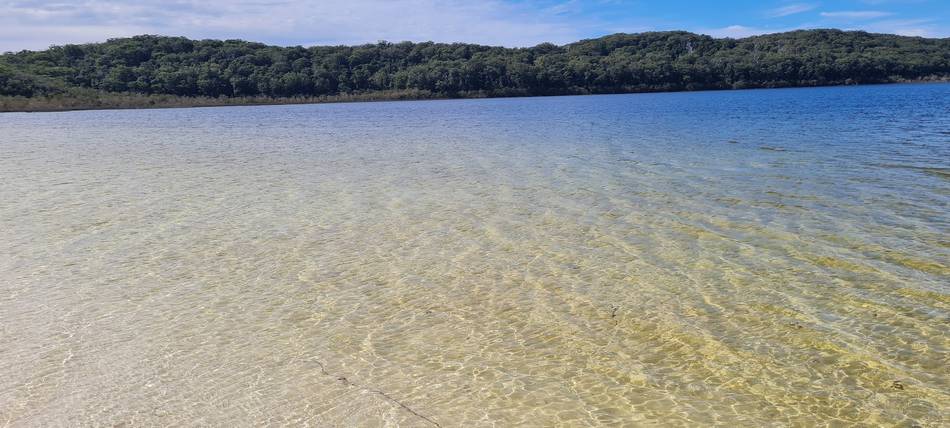Taking time off for a vacation helps you de-stress when you are feeling burnt out at work. But how long should a vacation be for you to maximize the associated feeling of happiness? This article will tell you exactly how long your vacation should be and why.
The optimal duration of a vacation is 8-10 days. A vacation should be long enough to achieve full health and wellness benefits. Scientific studies show that these benefits increase quickly during first days, peak on the eighth day, and drop rapidly afterwards. Add on 1-2 days to travel back home and unwind.
Determining how long a vacation should be is very important. If a vacation is too short, it may not be worth the hassle, and if it is too long, it becomes less enjoyable and too expensive. So, what do experts say about the optimal vacation duration?
Read on to find out more, including what you should consider when determining how long your vacation should be!
What Scientists Say About Optimal Vacation Length
One question that many people ask is: “Is there really such a thing as an optimal vacation duration?” They assume that since it is their vacation, money and time to spend, they should be able to stay as long as they want and can afford it.
In other words, is expert advice regarding vacation duration worth it?
Absolutely!
Consider this: Technically, you can afford to eat any food you want (after all, it’s your body and your money). However, that does not mean it is best for your body. In the same spirit, wanting to stay a particular duration (as it’s your resources to spend) does not mean it is best for vacation-associated happiness and rest.
Just like you need science (experts in nutrition) to shed light on what food is best for your body. You also need science to shed light on optimal vacation duration. The scientific knowledge about optimal vacation duration is formed by experts in sleep, psychology, trip planning, hospitality, and happiness.
Researchers find that there is a surge in happiness in the first few days of a vacation. Then the feelings increase progressively with each day and reach their peak on the eighth day, after which they fall progressively.
Source: Created using info from Springer
It takes 8 days to get the most out of a vacation because you need time to travel down to your destination, overcome the stress of travel, adjust to a new timezone, settle into the new environment, and enjoy vacation activities.
The optimal vacation duration is the time in your stay when experiences are optimized such that the positive vibes and feelings of happiness are highest.
At the optimal point (around the eighth day of your stay), experiences like relaxed feelings, sleep, and excitement from social activities are maxed out. For example, you are most relaxed when you are fully settled into the new environment and become completely detached (psychologically) from “home”.
You will enjoy longer and better sleep and would have enough time to enjoy social activities.
After the eighth day, the feelings of happiness fall progressively. For example, the excitement level drops a little when engaging in further social activities, and you may begin to worry about the projects/work you had left behind.

6 Key Considerations When Planning How Long Your Vacation Should Be
Vacationing can take on various forms – from branching into a nearby resort for relaxation to jetting off to the farthest parts of the world for thrilling adventures. So there is no one-size-fits-all when it comes to vacations.
However, no matter what form a vacation takes, the factors affecting happiness (health and wellness) feelings are similar. These factors need serious consideration when determining how long a vacation should be.
These factors are:
- Distance to travel
- Mode of travelling
- Settling in
- Purpose of the trip
- Content of the vacation
- A buffer day to unwind
1. Distance To Travel
Most often than not, vacationing requires moving from your primary home to somewhere else to enjoy some activities.
The distance to travel in moving from your home to the vacation destination is an important consideration when determining how long your vacation should be.
Scientific research shows that the distance to travel has a direct relationship with the duration of a vacation. That is, as the distance between your origin (home) and vacation destination increases, the duration of your stay (vacation duration) increases.
Greater distances lead to longer vacation duration because vacationers will want to stay for at least the minimum number of days that compensate for the effort (time and cost) expended in making the trip.
It is for this reason that a vacation to a faraway country is likely to be longer than one to a nearby city.
Time spent. The more the distance between your origin and your destination, the more time it’ll take to get there. Interestingly, vacationers always want to have as much time as possible to enjoy vacation activities. So, most often than not, vacationers add time to their duration of stay to compensate for the time spent on reaching the destination.
Travel cost. Generally, the longer the travel distance, the more the travel costs. Interestingly, travel costs are fixed and independent of the time spent in a vacation destination. So, vacationers on a long-distance vacation will want to stay for the minimum number of days that compensate for the cost expended in making the trip.

2. Mode Of Transportation
The mode of transportation to a vacation destination is a factor that affects the duration of stay because it has a direct relationship with travel time (as mentioned above) and energy levels on arrival.
The more time it takes to move from your origin to your destination, the more tired you’ll be on arrival, and the more resting time you’ll need before jumping into vacation activities.
Thus, if you’re travelling interstate for your vacation, and will drive, you may want to add a day to your vacation duration to compensate for the time lost on the road and the time it’ll take to recover upon arrival.
3. Settling In On Your Vacation
You begin to reap the health and wellness benefits of a vacation when you completely shake off journey-related physical and emotional symptoms, as well as a work-grind mindset and fully adjust to the new environment.
Adjusting to a new environment when on a vacation is very important, especially when you travel across multiple time zones. Crossing time zones quickly causes desynchronosis (more commonly called jet lag).
This is a disruption of the internal circadian clock. It can cause a range of symptoms, such as:
- Fatigue
- Sleeping problems (Insomnia or dizziness/ daytime sleepiness)
- Headaches
- Bowel problems (constipation or diarrhea)
- Malaise – a feeling of being unwell
- Lack of concentration
You’ll need to shake off these symptoms to start optimizing the health and wellness benefits of a vacation.
Interestingly, it takes one day for the human body to adjust to 1 – 1.5 changes in time zone. Westward travel is generally easier to adjust to than Eastward travel.
That is, depending on the number of timezones you fly across, it’ll take the following days for your body to naturally adjust to the new environment:
| Time zones crossed | Time to adjust | Minimum vacation duration (as per time zone crossed) to reap the most benefits |
| 3 | 2 – 3 days | 2 days |
| 6 | 4 – 6 days | 4 days |
| 9 | 6 – 9 days | 6 days |
| 12 | 8 – 12 days | 8 days |
Source: Created using info on National Library of Science
So when flying halfway around the world, and crossing as many as 12 time zones, your body may not fully adjust until the eighth day. That’s when you’ll have shaken off the effect of your journey for optimal health and wellness benefits.

4. Purpose Of The Trip
The reason for a vacation is an important consideration when planning your duration of stay. Generally, vacations for relaxation are shorter than those for discovery and exploration.
Some reasons for this are:
- You do relatively less when vacationing for relaxation.
The critical point when vacationing for relaxation is when you can psychologically detach yourself from work. It is when you are most relaxed, and the health and wellness benefits of the vacation begin to soar. Research shows that it takes about 4 days for this psychological detachment to happen.
However, vacations for discovery/ exploration/ adventure involve more than psychologically detaching yourself from home. It also requires deeply connecting yourself to experiences native to the vacation destination, and this takes longer.
- Activities in relaxation-focused vacations can easily become repetitive
Popular activities in relaxation-focused vacations are a time in nature, going to the beach, and getting massages. Sadly, these activities can easily become repetitive and make the vacation less enjoyable.
On the other hand, there’s so much more to do when vacationing for discovery/ exploration/ adventure that “diminishing returns” is pushed farther away.
5. Content Of The Vacation
The content of your vacation has a direct relationship with vacation duration. The more activities planned, the more you’ll have to do/see, and the longer time you’ll need.
However, this does not mean that you should plan an endless list of activities to have a very long vacation.
The law of diminishing marginal utility explains that as you consume more and more of a product/service, the satisfaction you derive increases steadily, and at some point, it starts declining.
The law of diminishing marginal utility is one reason there is an optimal vacation duration. As you engage in more and more vacation activities, satisfaction/ happiness increases steadily. At some point (around the eighth day), you obtain less satisfaction from more activities.

6. A Buffer Day To Unwind
Having a buffer day in between your return and resuming work will help you enjoy the health and wellness benefits of your vacation for longer, and get you back to your regular activities with minimal pressure.
So when planning the duration of your vacation, add an extra day to relax at home. This extra day will allow you to:
- Rest and readjust. The journey home can be stressful. The day off before work begins, allows you to rest and sleep properly to facilitate getting over the jetlag.
- Get organized. The day off before work can be used to unpack and do chores that smoothen reentering work (such as laundry, shopping, etc.).
- Consolidate vacation memories. You can use the day off to reflect on travel experiences and reminiscence with travel companions. This makes the vacation benefits last longer.
FAQs
Are Two Days Enough For A Vacation?
Considering that you need enough time to reach the vacation destination, adjust to the new environment, and engage in vacation activities, 2 days may not be enough for a vacation.
However, if your vacation is a staycation (spent at/ near your home and involving trips to local attractions), 2 days may be enough. This is because you’ll not spend much time travelling or readjusting, and you wouldn’t need long to connect with locals for a more meaningful vacation experience.
How Long Is Too Long For A Vacation?
Just over a week is the optimal duration for a vacation as the benefits associated with vacationing start tapering off after the eight-day. After two weeks, not only does the vacation become less enjoyable, and stress can accumulate. So, 2 weeks is too long for a vacation.
How Can You Get The Most Out Of Your Vacation Time?
To get the most out of your vacation, take multiple 8 – 10 days-long vacations, spaced throughout the work year. Plan beforehand for either a relaxation-focused or adventure-focused vacation instead of attempting to do it all and ending up doing nothing well.
When travelling for relaxation, visit resorts, beaches, massage parlours, etc., and when travelling for adventure/exploration, go sightseeing, hiking, etc.
What Is The Average Vacation Time in The U.S.?
In the U.S., the length of the average vacation is four (4) days. Many employers offer their workers 10 – 16 days of paid leave, but not many employees take all the time off.
What Country Has The Most Vacation Time?
The countries with the most vacation time are Kuwait, Andorra, Yemen, and Bahrain. These countries give workers paid vacation time of 30 working days, separate from public holidays. In Europe, Austria, France, Iceland, and Spain lead the way, as they offer workers paid vacation time of 25, 25, 24, and 22 working days, respectively.
Sadly, the U.S. does not legally require paid vacation for its workers.

Final Thoughts
Eight days is the optimal length for a vacation. It is enough time to adjust to the new environment and immerse yourself in vacation activities for optimum happiness. We hope this article helped you learn more about the optimal vacation length and why it is so important. Happy resting!
More Pages On Other Areas
Vacations are fun and can be a wonderful way for couples to spend quality time together. As a couple spends time together, they create memories to cherish forever. However, one question often arises:...
Recreational fishing in many parts of Victoria requires a licence that enables you to have fun while legally carrying out your non-commercial fishing activities. However, there's often a lot of...


